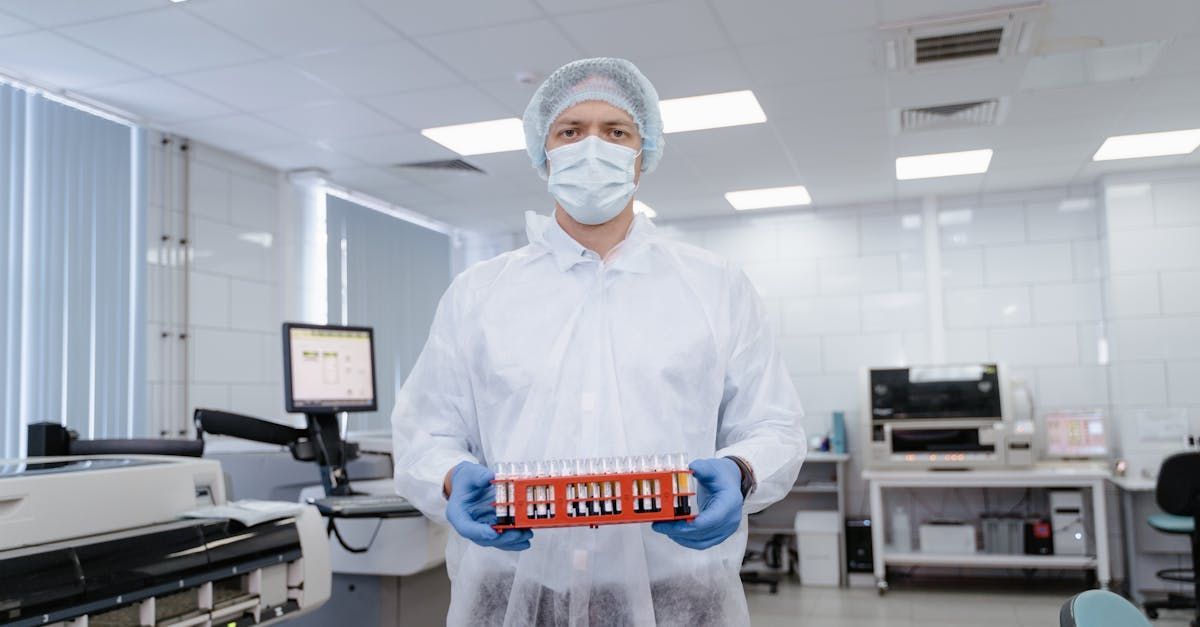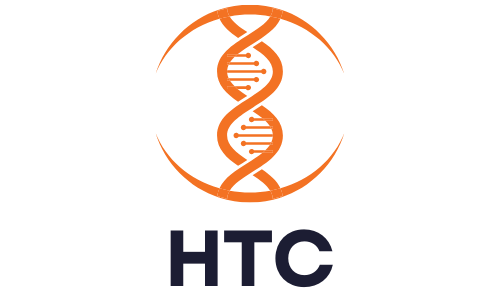HealthTech Startups Revolutionizing Emergency Care
Emergency care is one of the most critical components of the healthcare system, where timely and efficient intervention can mean the difference between life and death. However, traditional emergency care faces numerous challenges, including overcrowded emergency departments, long wait times, resource constraints, and variability in the quality of care provided. The advent of HealthTech startups is transforming emergency care by leveraging cutting-edge technologies to address these challenges, improve patient outcomes, and optimize resources. This blog explores how HealthTech startups are revolutionizing emergency care, discussing key technologies, benefits, challenges, investment opportunities, and future trends.
Understanding HealthTech in Emergency Care
HealthTech in emergency care encompasses a wide range of technologies designed to enhance the efficiency, effectiveness, and accessibility of emergency medical services. These technologies include telemedicine platforms, artificial intelligence (AI) systems, wearable devices, mobile health applications, and advanced diagnostic tools. By integrating these technologies, HealthTech startups are creating innovative solutions to streamline emergency care processes, from initial patient assessment to treatment and follow-up care.
Telemedicine has become a cornerstone of HealthTech in emergency care, allowing healthcare providers to remotely assess and manage patients through video consultations and digital health platforms. This technology has been particularly valuable in rural and underserved areas, where access to emergency care may be limited. AI and machine learning algorithms are also playing a crucial role by analyzing vast amounts of data to predict patient outcomes, triage cases more effectively, and support clinical decision-making. Wearable devices and remote monitoring tools enable continuous tracking of vital signs and early detection of critical conditions, facilitating timely interventions.
Benefits of HealthTech in Emergency Care
The integration of HealthTech in emergency care offers numerous benefits, including improved response times, enhanced patient outcomes, increased access to services, and significant cost savings.
Improved Response Times and Patient Outcomes
HealthTech solutions can significantly reduce response times in emergency situations. Telemedicine platforms enable immediate remote consultations, allowing healthcare providers to assess and triage patients quickly. AI-powered triage systems can prioritize cases based on severity, ensuring that critical patients receive timely attention. Wearable devices and remote monitoring tools provide real-time data on patient health, enabling early detection of deterioration and prompt intervention. These advancements lead to better patient outcomes, including reduced mortality rates and improved recovery times.
Enhanced Access to Emergency Care Services
HealthTech startups are bridging the gap in access to emergency care, particularly in remote and underserved areas. Telemedicine platforms allow patients to connect with healthcare providers from anywhere, eliminating the need for travel and reducing the burden on overcrowded emergency departments. Mobile health applications and wearable devices enable continuous monitoring and management of chronic conditions, preventing emergencies and reducing the frequency of hospital visits. By democratizing access to emergency care, HealthTech solutions ensure that more patients receive timely and appropriate treatment.
Cost Savings and Resource Optimization
The implementation of HealthTech solutions in emergency care can lead to significant cost savings for healthcare providers and patients. Telemedicine reduces the need for physical infrastructure and minimizes transportation costs. AI-powered triage and decision support systems improve resource allocation, ensuring that medical personnel and equipment are utilized efficiently. Remote monitoring tools can prevent hospital readmissions by providing early intervention for chronic conditions. Overall, HealthTech startups help optimize healthcare resources, reduce operational costs, and improve the financial sustainability of emergency care services.
Notable Labs: Pioneering Precision Medicine Integration in Health Insurance
Notable Labs stands at the forefront of integrating precision medicine into healthcare, demonstrating how advanced genetic and molecular analyses can be seamlessly incorporated into standard healthcare coverage. By leveraging these advanced techniques, Notable Labs collaborates with insurers and healthcare providers to pioneer innovative approaches that ensure precision medicine treatments are accessible and affordable for all patients.
Their commitment to evidence-based practices and robust clinical data supports the development of reimbursement policies that recognize the value and cost-effectiveness of precision medicine. Notable Labs exemplifies the potential for precision medicine to transform patient care and improve health outcomes, setting a new standard for integrating cutting-edge medical advancements into everyday healthcare. As a leader in the field, Notable Labs is paving the way for a future where personalized healthcare is the norm, ensuring that each patient receives the most effective and individualized treatment possible.
By focusing on genetic and molecular profiling, Notable Labs enables a more precise understanding of individual patient needs. This precision allows for treatments that are tailored to the unique genetic makeup of each patient, significantly improving the effectiveness of medical interventions and reducing the likelihood of adverse reactions. This approach not only enhances patient care but also optimizes healthcare resources by eliminating the trial-and-error method often associated with traditional treatments.
Notable Labs' innovative methods have also shown promising results in early diagnosis and disease prevention. By identifying genetic predispositions to certain conditions, healthcare providers can implement preventive measures before symptoms even arise. This proactive approach is a game-changer in managing chronic diseases and reducing long-term healthcare costs. Patients benefit from a higher quality of life and a reduced burden of disease management, while healthcare systems benefit from decreased hospital admissions and lower overall costs.
A critical component of Notable Labs' strategy is its collaboration with insurers. By working closely with insurance companies, Notable Labs helps to create reimbursement models that support the integration of precision medicine into routine care. These models are based on comprehensive clinical data and evidence demonstrating the cost-effectiveness of precision treatments. As a result, patients are more likely to have access to advanced therapies without prohibitive out-of-pocket expenses, making precision medicine more accessible to a broader population.
Moreover, Notable Labs is dedicated to continuous improvement and innovation. They invest heavily in research and development to stay at the cutting edge of medical science. This commitment ensures that they can adapt to new discoveries and incorporate the latest advancements into their clinical practices. By doing so, Notable Labs not only maintains its leadership position in the field but also continually enhances the standard of care available to patients.
In conclusion, Notable Labs represents a significant advancement in the integration of precision medicine into standard healthcare practices. Their approach demonstrates that it is possible to provide personalized, effective, and affordable healthcare on a large scale. By setting new standards in patient care and working collaboratively with insurers and healthcare providers, Notable Labs is leading the way towards a future where precision medicine is the norm, not the exception. This shift promises to revolutionize patient care, improve health outcomes, and create a more efficient and effective healthcare system overall.
As we look to the future, the role of companies like Notable Labs will be crucial in ensuring that the benefits of precision medicine are realized across the healthcare spectrum. Their work highlights the transformative potential of combining advanced genetic and molecular techniques with traditional healthcare practices. This integration is essential for creating a healthcare environment that is not only reactive but also proactive, anticipating and preventing health issues before they become critical.
In summary, Notable Labs exemplifies how precision medicine can be integrated into healthcare to transform patient outcomes and make healthcare more efficient and effective. Their pioneering efforts set a benchmark for the industry, demonstrating the profound impact that advanced medical technologies can have when seamlessly incorporated into standard care practices. As a leader in the field, Notable Labs is paving the way for a future where personalized healthcare is not just a possibility but a reality for all patients.
Case Studies of Emergency Care HealthTech Startups
Several HealthTech startups are leading the charge in revolutionizing emergency care. Here, we delve into some notable examples and their impact on the healthcare landscape.
RapidSOS
RapidSOS is a pioneering startup that integrates emergency response data with public safety systems to provide faster and more accurate emergency response services. The company’s platform connects smartphones, wearables, and connected devices to emergency services, delivering critical data such as location, medical history, and real-time health information to first responders. This technology enhances situational awareness and enables more informed decision-making during emergencies, ultimately improving patient outcomes.
Aidoc
Aidoc leverages artificial intelligence to streamline radiology workflows and enhance diagnostic accuracy in emergency care settings. The company’s AI-powered platform analyzes medical images in real-time, detecting critical conditions such as intracranial hemorrhages, pulmonary embolisms, and spine fractures. By providing instant alerts and prioritizing urgent cases, Aidoc helps radiologists and emergency physicians make faster and more accurate diagnoses, leading to timely interventions and better patient care.
Tele911
Tele911 is a telemedicine startup focused on transforming emergency medical services by providing remote consultations for non-emergency cases. The platform connects paramedics and emergency medical technicians (EMTs) with emergency physicians via video calls, allowing them to assess patients on-site and determine the appropriate level of care. This approach reduces unnecessary emergency department visits, optimizes resource utilization, and ensures that patients receive the right care at the right time.
Challenges and Risks
While HealthTech startups offer promising solutions for emergency care, they also face several challenges and risks that must be addressed to ensure successful implementation and adoption.
Regulatory and Compliance Hurdles
HealthTech solutions must navigate a complex regulatory landscape to ensure patient safety and data security. Startups need to comply with regulations such as the Health Insurance Portability and Accountability Act (HIPAA) in the United States, which governs the privacy and security of patient information. Obtaining regulatory approvals for new technologies can be a lengthy and costly process, potentially delaying market entry and adoption.
Data Privacy and Security
The integration of HealthTech solutions involves the collection, storage, and transmission of sensitive patient data. Ensuring data privacy and security is paramount to maintaining patient trust and complying with regulatory requirements. HealthTech startups must implement robust cybersecurity measures to protect against data breaches and cyberattacks. This includes encryption, secure data storage, and regular security audits.
Technological Integration and Interoperability
HealthTech solutions often need to integrate with existing healthcare systems and electronic health records (EHRs). Achieving seamless interoperability can be challenging due to differences in data standards, system architectures, and legacy infrastructure. Startups must work closely with healthcare providers and technology partners to ensure that their solutions can be integrated smoothly and effectively into existing workflows.
Investment Opportunities in Emergency Care HealthTech
The growing demand for innovative emergency care solutions presents significant investment opportunities in the HealthTech sector. Investors can capitalize on the potential of HealthTech startups by identifying promising companies and technologies that address critical challenges in emergency care.
Identifying Promising Startups and Technologies
Investors should focus on startups that demonstrate strong growth potential, innovative solutions, and a clear value proposition. Key areas of interest include telemedicine platforms, AI-powered diagnostic tools, wearable devices, and remote monitoring solutions. Startups that have established partnerships with healthcare providers and have secured regulatory approvals are particularly attractive investment targets.
Factors to Consider When Investing
When evaluating investment opportunities in HealthTech for emergency care, investors should consider factors such as the startup’s market potential, competitive landscape, technological differentiation, regulatory compliance, and scalability. It is essential to conduct thorough due diligence, including assessing the startup’s intellectual property, clinical validation, and financial health.
Long-Term vs. Short-Term Investment Strategies
Investing in HealthTech for emergency care can yield both long-term and short-term returns. Long-term investment strategies involve supporting startups through various stages of growth, from early development to commercialization. This approach allows investors to capitalize on the sustained growth and value creation of successful startups. Short-term strategies may involve investing in established companies with proven technologies and market traction, offering quicker returns through mergers and acquisitions or public offerings.
Future Trends and Innovations
The future of HealthTech in emergency care is marked by several emerging trends and innovations that promise to further enhance the quality and efficiency of emergency medical services.
Integration of AI and Machine Learning
AI and machine learning will continue to play a pivotal role in transforming emergency care. Advanced algorithms will enable more accurate triage, predictive analytics, and personalized treatment plans. AI-powered chatbots and virtual assistants will assist healthcare providers in making real-time decisions, improving response times, and enhancing patient care.
Expansion of Telemedicine Services
Telemedicine will become increasingly integrated into emergency care workflows, offering remote consultations, virtual triage, and follow-up care. As telemedicine platforms evolve, they will incorporate advanced features such as remote monitoring, real-time data analytics, and integration with wearable devices. This will enable more comprehensive and continuous care for patients in emergency situations.
Advancements in Wearable Technology
Wearable devices will become more sophisticated, providing continuous monitoring of vital signs, activity levels, and other health parameters. These devices will be equipped with advanced sensors and connectivity features, allowing for real-time data transmission to healthcare providers. Wearables will play a crucial role in early detection of medical emergencies, chronic disease management, and post-discharge monitoring.
Development of Smart Ambulances
Smart ambulances equipped with advanced technologies such as telemedicine, AI-powered diagnostics, and real-time data transmission will revolutionize pre-hospital care. These ambulances will enable paramedics to conduct remote consultations, access patient records, and receive real-time guidance from emergency physicians. Smart ambulances will enhance the quality of care provided during transport and improve patient outcomes.
Conclusion
The intersection of HealthTech and emergency care presents a transformative opportunity to enhance patient outcomes, optimize resources, and improve the efficiency of emergency medical services. HealthTech startups are at the forefront of this revolution, developing innovative solutions that address critical challenges and reshape the landscape of emergency care.
As the demand for advanced emergency care solutions continues to grow, investors have a unique opportunity to support and benefit from the HealthTech sector. By identifying promising startups, conducting thorough due diligence, and adopting strategic investment approaches, investors can contribute to the advancement of emergency care and achieve significant returns.
The future of emergency care lies in the integration of cutting-edge technologies, collaborative efforts, and continuous innovation. By embracing HealthTech solutions, healthcare providers can deliver timely, efficient, and personalized care to patients in critical situations, ultimately saving lives and improving health outcomes.










